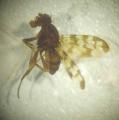Diptera.info :: Identification queries :: Diptera (adults)
|
Loxocera identification problem
|
|
| Gateside |
Posted on 17-08-2014 07:38
|
|
Member Location: Cumbria, UK Posts: 74 Joined: 24.10.13 |
Location - Cumbria, UK. There are 5 species in the UK in the Loxocera genus. I tried using a key, based on the following features from my images. * size 7-9 mm * scutellum orange * humeri black * face above eye dark brown to black, face below eye yellow-white, with a stripe of white hairs from the mouth across the cheek. Using the key with the above produced a result which didn't fit, especially since there is a broad mid-brown band down the middle of the face below the antennae. However, apart from the colour of the humeri, these features seem to fit Loxocera sylvatica. Looking carefully again at the humerus (or where I think it should be in the image!) on the female (left side), it does appear to be dark orange on the underside, not black. In the image with the male only, I am not sure how far the humerus extends, but it does appear that the extreme outer corners of the thoracic dorsum are orange to white, even though there is black further inwards. I am not sure if this counts as the humerus. Is this sufficient justification to say that it is actually L. sylvatica? 1st image of male (on left) approaching the female for mating. Gateside attached the following image: 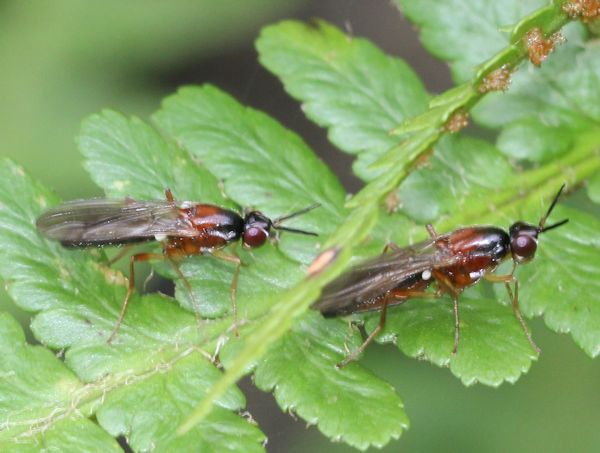 [57.61Kb] |
|
|
|
| Gateside |
Posted on 17-08-2014 07:41
|
|
Member Location: Cumbria, UK Posts: 74 Joined: 24.10.13 |
face of female from the front / side, showing the mid-brown band down the middle.
Gateside attached the following image: 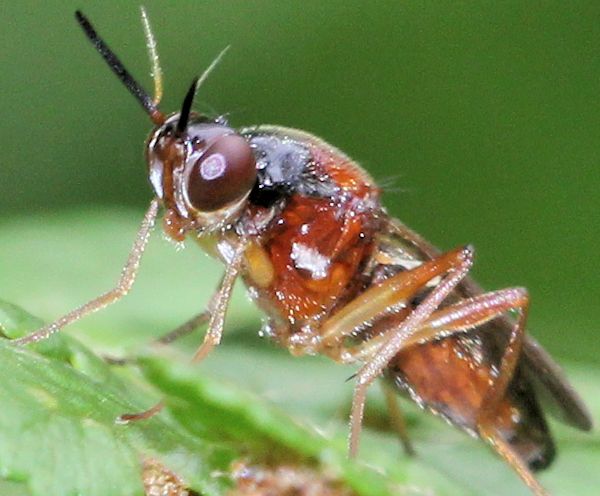 [62.2Kb] |
|
|
|
| Gateside |
Posted on 17-08-2014 07:42
|
|
Member Location: Cumbria, UK Posts: 74 Joined: 24.10.13 |
male, side view, with humerus visible.
Gateside attached the following image: 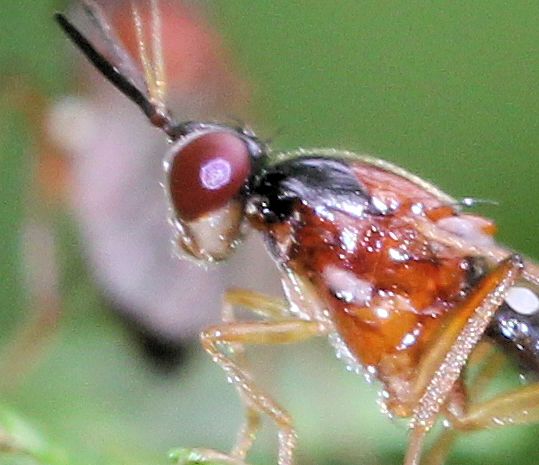 [58.29Kb] |
|
|
|
| Gateside |
Posted on 17-08-2014 07:43
|
|
Member Location: Cumbria, UK Posts: 74 Joined: 24.10.13 |
another view of the male with a sight of the humerus
Gateside attached the following image: 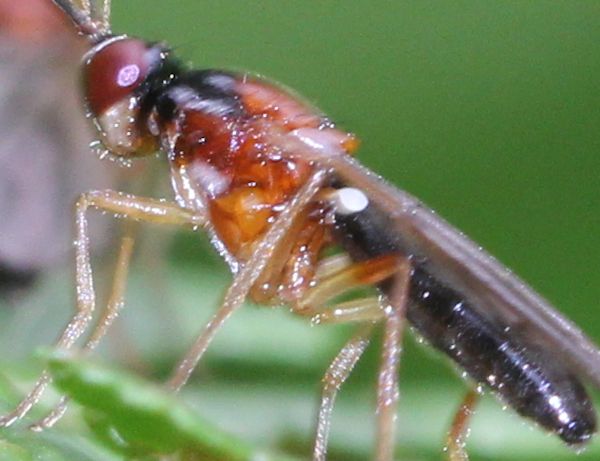 [55.39Kb] |
|
|
|
| Zeegers |
Posted on 17-08-2014 09:53
|
|
Member Location: Soest, NL Posts: 19286 Joined: 21.07.04 |
I think you are barking up the wrong tree. The arista seems to be plumose,so it should be L. albiseta. In any case, sylvatica is much smaller. Theo |
|
|
|
| Gateside |
Posted on 17-08-2014 12:17
|
|
Member Location: Cumbria, UK Posts: 74 Joined: 24.10.13 |
Thanks Theo. I may well be barking up the wrong tree (I often do). But the key I use has only nigrifrons as a smaller size (5-7mm), and sylvatica, albiseta, aristata and fulviventris as in the right range of 7 - 9 mm. And the key has albiseta as having a broad yellow central band below the antennae, but mine has a broad brown band. This is why I was puzzled - nothing seems to fit. Another image uploaded of the face of the female, showing the brown band in the middle. Nigel Gateside attached the following image: 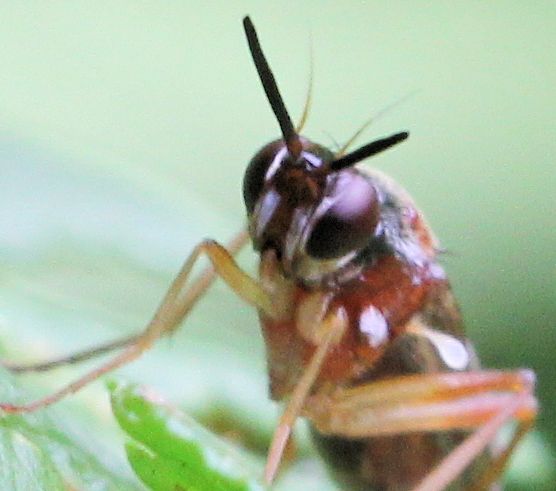 [48.22Kb] Edited by Gateside on 17-08-2014 12:23 |
|
|
|
| Zeegers |
Posted on 17-08-2014 16:27
|
|
Member Location: Soest, NL Posts: 19286 Joined: 21.07.04 |
yellow, brown, yellowis-brown, brownish-yellow ? the feature of the length of the hairs on arista is much more relevant ! Not sure which key you are using, but 'our' sylvatica are definitely small Theo Theo |
|
|
|
| Gateside |
Posted on 18-08-2014 07:29
|
|
Member Location: Cumbria, UK Posts: 74 Joined: 24.10.13 |
That is interesting! The key I have used does not refer to the antennae or the arista, but there is a note at the bottom of the key about the lengths and rations being too variable to use in a key! I shall have to find somebody in the UK who knows what is going on! Thanks Theo. Nigel |
|
|
|
| Jump to Forum: |


